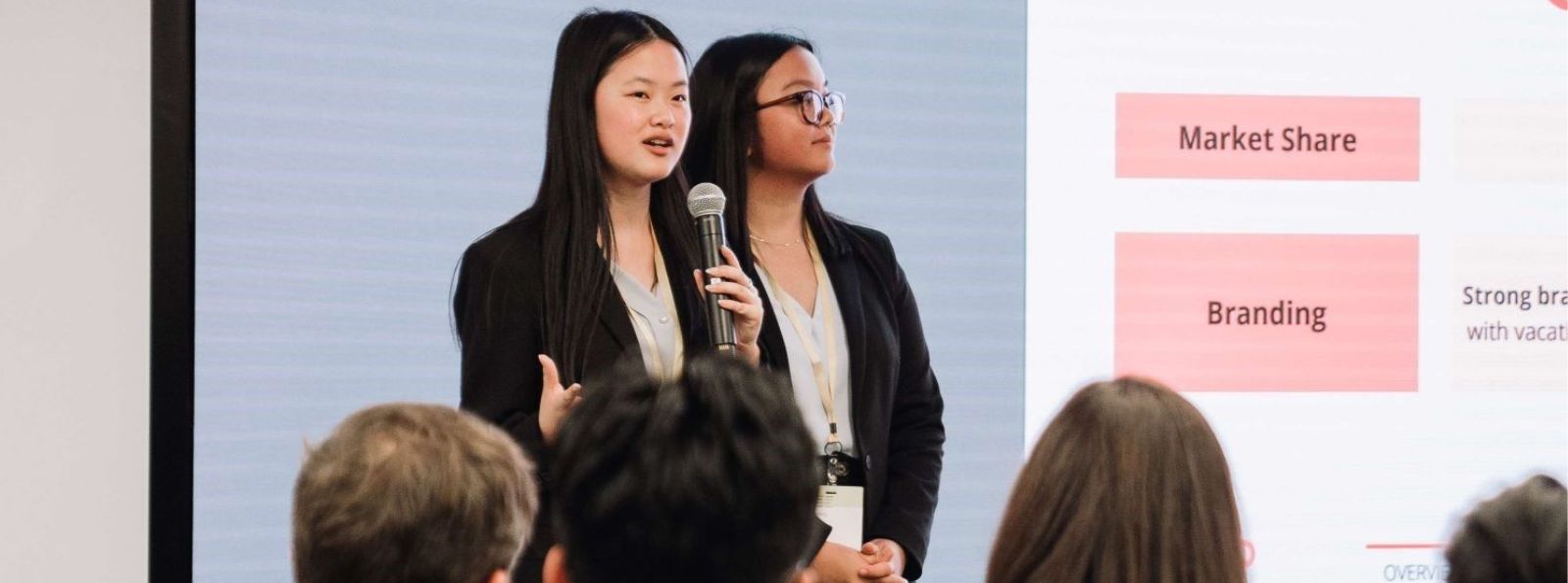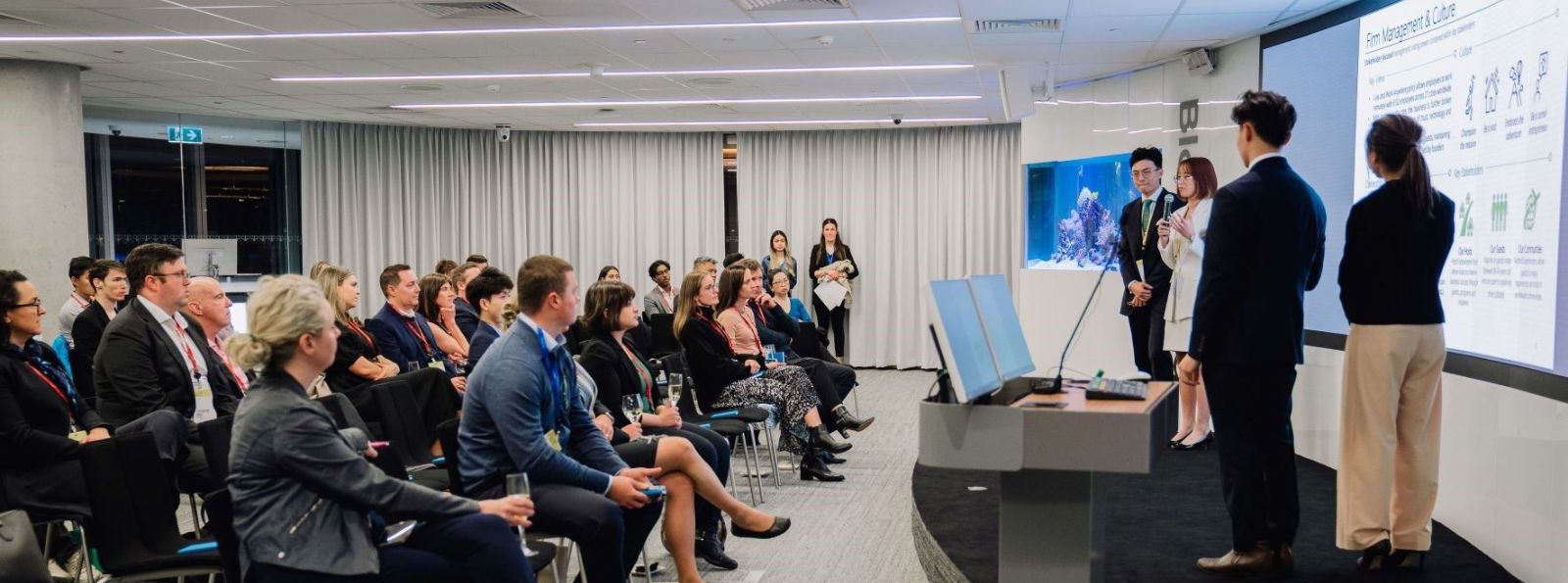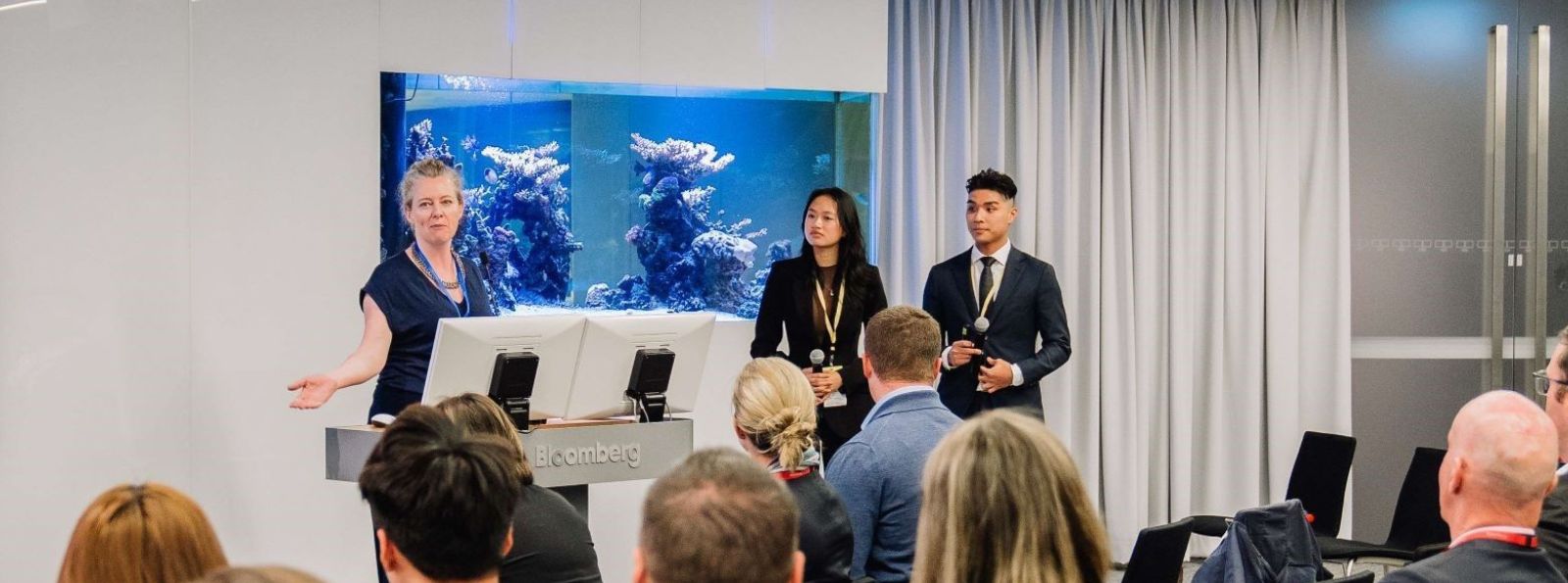Only 10% of portfolio managers are female. This woman is out to change that
There's no denying the financial services industry has a gender diversity problem. Currently, 10% of portfolio managers in Australia are women. When the superannuation industry is included, that number swells to an uninspiring 25%.
And yet, research shows that women are just as good, if not better, investors than men. So why are there still so few women leading investment teams across the country?
It's a question that has been baffling Yolanda Beattie for years. And, it would end up influencing her to change the direction of her career and launch the Future IM/Pact initiative just shy of five years ago.
Today, Future IM/Pact works with the investment management industry to help them attract and retain diverse investment talent.
"We do this by helping great talent launch and build a fulfilling career while inspiring leaders to create the environment where everyone can do their best work," Beattie says.
And demand for this type of guidance has been growing.
A year ago, Future IM/Pact was partnered with 14 different investment management firms and superannuation funds in Australia. Now, it has 23 partners. It currently has thousands of female students in its database, and a high-achieving list of 150 top female students that will hopefully be accepted into entry-level roles.
As part of Livewire's coverage for International Women's Day, I sat down with Yolanda to learn more about her journey, and the impact the initiative is having on the industry. She also shares why the status quo isn't good enough - and why we have to act now if we have any hope of seeing real change in the industry over the next decade.

- Name: Yolanda Beattie
- Firm: Yo&Co - owners of Future IM/Pact
- Years in the industry: 20
- Speciality: Leadership development, team performance, attracting and keeping great female investors
- Biggest personal portfolio holding: It's all in super
- One thing very few people know about you: I am an open book so there are few known unknowns. Some of the quirkier aspects of my life are my modern rainbow family (my daughter's dad is gay), I'm fascinated by the nature of ego and identity and how it limits our potential and I'm a passionate student of consciousness.
- Your guilty secret TV or reading pleasure: I don't do secrets and mostly don't feel guilty but I did find myself surprisingly enthralled by the Harry and Meghan saga and found myself watching all three episodes of the Netflix documentary. I'm intrigued by power dynamics, especially when they're institutional.
Note: The interview was recorded on Thursday 23 February 2023.
The lightbulb moment
Beattie has worked within the financial services industry for a good 25 years, but it was only five years ago that she realised she could effect actual change.
"When I was on the 30% Club Investor Working Group, I worked with the industry on how we could advocate for more women on boards. And many leaders around the table were saying, 'We've got a credibility issue on this topic because we don't have many women on our investment teams'," she explains.
Instantly, Beattie's curiosity was sparked. She embarked on a mission to research and better understand the problem - being, the minute number of women managing money - and from there, ideas and solutions were built.
"Future IM/Pact was initially focused just on attracting more women at university into the investment management industry and front office teams in particular. That was nearly five years ago," she says.
"Post-COVID, the industry is now ready, willing and excited about working together on not just attracting more women into the industry, but building workplaces where they want to stay and creating the environments where they can do their best work."
Now, the financial services industry is ready to recognise that if we don't build the pipeline from the ground up, and focus on retaining women during and after their child-bearing years, we're not going to move the dial over the next decade, she adds.
So why gender diversity, of the plethora of societal and business issues Beattie could tackle?
"It's a business imperative and it's a social justice issue, but the social justice angle alone isn't enough to inspire me," she says.
"The blending of economic business imperatives and social justice is what I'm passionate about. Having the chance to influence this hugely powerful, massively growing industry on this important issue was just too tempting to not sink a fair bit of my career into."
.jpg)
The many and the few
Currently, only 10% of portfolio managers in Australia are women. If we include super funds as well, that figure lifts to an uninspiring (and far from equitable) 25%.
So why is the industry nowhere near as gender diverse as we may like? Well, it all comes down to the structure of investment teams, Beattie explains.
"Investment teams are small, their turnovers are low and their hierarchies are flat. And so the current status quo of male dominated teams has been in place for a long time," she says.
"This really comes down to awareness and perception issues. Even with the size and sophistication of the industry, it has always been a very male stereotype to be interested in markets and investing.
"Whether that is because of the more 'macho' nature of brokering firms, for example, or the highly competitive nature of investing roles, which have traditionally been very blokey, the industry has continued to be unappealing to so many women."
This has only been compounded further by Hollywood stereotypes, like the Wolf of Wall Street or Billions, which reinforce the idea of investing being a "boys' club".
"Over the past five to 10 years, that "boys' club" has been breaking down. But that change will be slow unless the industry comes together to disrupt those dynamics," Beattie says.
"No one fund can do what it takes to build a groundswell of female talent. And so that's the role that we're looking to address and have been addressing."
That said, there are some funds doing "good work" themselves, attracting and retaining talented women on their teams, she adds.
What does Future IM/Pact do?
Future IM/Pact targets 18 to 25 years olds either in university or in the first stages of their careers. The program aims to inform, inspire and enable., and it does that by providing them with a deeper insight into what a career in finance would look like, introducing them to high-profile role models and finally, giving them the platform to demonstrate their skills to potential employers (so they can actually land jobs).
"We run mentoring circles (for large and small groups), competitions, networking events, and opportunities that are all about accessing that exposure, but also about getting insight into the specific skills that this group needs to develop if they are to be successful in these roles," Beattie explains.
"We've placed 31 women over the past four years into intern, grad or analyst roles. And many of those women, particularly at the intern level, didn't know about investment management before they came across us."
.jpg)
Future IM/Pact also runs an annual investment competition, with opportunities for students to compete across the country.
"Gender-balanced teams of between two to four students solve one of a number of investment challenges," Beattie explains.
"We intentionally showcase a range of challenges to demonstrate the breadth of the industry - that it's not just stocking picks, it's also asset allocation, tilting geographic regions, ESG, private equity, and any number of different challenges that they might look to get their teeth stuck into."
The winning team receives a paid summer internship, and now, will also be profiled by the Livewire Markets team as part of our Meet the Investor series.
But on top of that, these students get to present to (and later mingle with) industry leaders in their regions, getting the exposure that they likely wouldn't have gained otherwise.
It's more than just getting women in the door
Back in 2016, Beattie's research found that women were up to 50% more likely to leave at the senior analyst level and up to 30% less likely to be promoted.
"Men were moving up the hierarchy faster and staying in teams longer," she says.
"Women felt that flexibility and bias were massive barriers, particularly managing challenges of parental leave. Unsurprisngly, there was a real lack of trust that their employers really had their backs on those issues.
"There was also a belief that men were more likely to be supported to move up through the ranks."
This is why Beattie is adamant that the behaviours and systems within investment management businesses need to change. If we don't, the industry will continue to struggle to retain women on teams, particularly when they start having children.
"There's no one-size-fits-all magic program, there's no magic policy. It's having a conversation with every single woman to understand the specific circumstances she's facing and the support she needs," Beattie says.
That said, things have been improving of late, particularly thanks to the advent of working from home during the COVID-19 pandemic.
"Flexible working has definitely made a difference. Both men and women with young families need support in sharing the domestic load - men face the same challenges as women in managing that burden," Beattie says.
"Certainly, the superannuation industry has absolutely gotten more flexible, particularly those based in Melbourne. They are absolutely on board with the hybrid working structure. And I don't see any move away from that. However, there are some businesses that haven't embraced this change, and have once again reverted to a more traditional work model."
.jpg)
And for the naysayers who think the industry is fine as it is... Why the status quo isn't good enough
There is a slew of studies that show that women make better investors than men, but even if we were to pick holes in that research, there's no denying that women are just as good as their male counterparts.
"Fund managers and super funds are looking for alpha and long-term returns. But you're missing a trick if you're not accessing the female talent pool in that process," Beattie says.
"Anyone who has worked in a hypermasculine or all-male team, compared to those that have worked in a great gender-balanced team can feel the difference."
Teams with genuine gender diversity are often more thoughtful, patient, curious, constructive and less competitive, Beattie explains.
"The culture and the behavioural shifts that come from diversity is what I see most leaders being motivated by, not to mention just the ick-factor of continuing to work within a leadership team that's all men," she says.
Without male leaders coming to the table, very little will change. As they say, one person can effect change on many others. But it takes many to create real positive change in the world.

